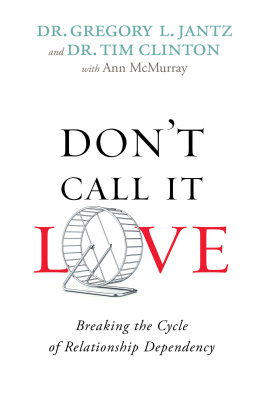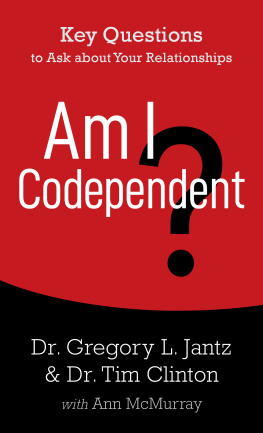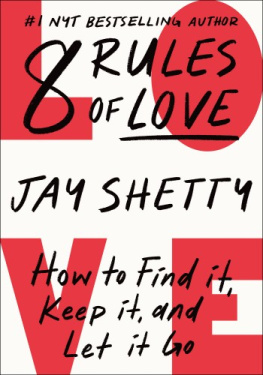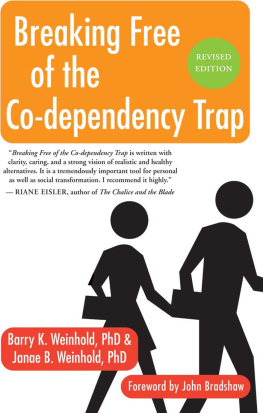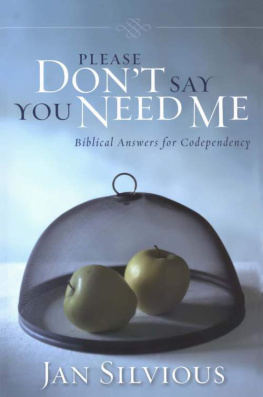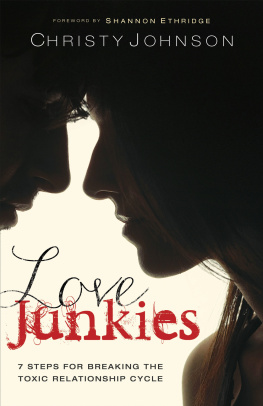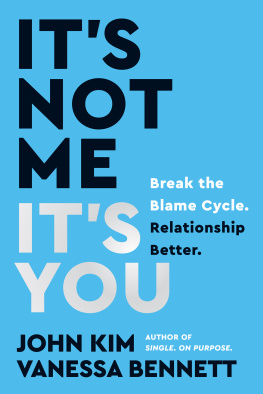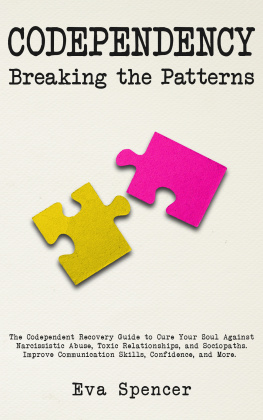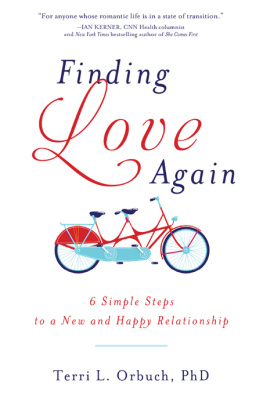Both of us would like to acknowledge the work of Lonnie Hull DuPont, executive editor at Revell, for her insightful and invaluable contributions.
Introduction
What Is Relationship Dependency?
Having coauthors on a book about relationships seems fitting. The two of us (Dr. Gregg and Dr. Tim) have known each other professionally and personally for years. We have presented information together at annual conferences and through webinars for the American Association of Christian Counselors. Weve gotten to know and trust each other. In our professional lives, each of us has counseled people who experience difficulty in their relationships. These are people who are drawn to relationships, but those relationships are a source of continual struggle and stress.
Where would we be without relationships? The short answer to that question is we would be alone. While alone can feel good for some, alone does not always feel good for most. We look to relationships to help us frame our lives, to give us identity and purpose. We rely on relationships for affirmation and affection. When our circumstances changelocations, jobs, healthrelationships can be the glue that holds the rest of our lives together.
Our relationships are supposed to give us love, strength, encouragement, and affirmation. Our relationships are supposed to tie us to others in positive and uplifting ways. Sadly, some do not. Why and how do some relationships create heartache and havoc? Why and how do some relationships bring desperation, frustration, and unmet needs? Why and how do some relationships that should produce comfort produce pain instead?
There are so many questions concerning relationships. How do you know what the relationship rules are? How do you know when youre offtrack in a relationship? When is doing too much really doing too much? When are the expectations of the other person unreasonable? When are your own expectations unreasonable? How can you say no without risk? If relationships are supposed to be about give-and-take, why do some relationships seem so one-sided? How can you avoid a backlash of struggle, frustration, and unmet expectations?
The answers to questions such as these are complex because relationships are complex. No check-off-the-box propositions, relationships are an amalgamation of needs, a meshing of expectations, and a breeding ground for both positive and negative emotions. Relationships help you establish bonds with other people while affecting the bond you have with yourself. On the surface, relationships are about other people, but ultimately, your relationships say a great deal about you . Relationships are windows of the soul, reflecting your inner needs and deeply held beliefs. Any relationship you have with another person reveals how you feel about yourself.
For some people, relationships become a minefield of frustration and dissatisfaction. These relationships dont seem to get better but languish in a perpetual place of pain. As difficult as a relationship seems, the thought of being without the relationship is worse. Within this tension of cant-live-with and cant-live-without lies relationship dependency. Relationship dependency happens when a person becomes dependent on relationships to function in life.
At the core, a person who is dependent on relationships has difficulty loving or trusting self and needs relationships to provide validation and value. When a dependent person seeks identity, safety, and meaning in life through another person, staying with that person becomes a matter of survival. Ask why someone who is physically abused would stay in that relationship, and relationship dependency becomes an answer. Ask why someone would allow being verbally or emotionally battered day after day, and relationship dependency becomes an answer. Ask why someone always seems to jump from one intense relationship to another, and relationship dependency becomes an answer. Relationship dependency creates situations in which the other person becomes the air the dependent person breathes, their very means of survival.
Relationship dependent people will often put up with the terrible because the alternativebeing aloneis unthinkable. Dependent people may come to resent and distrust the other person in the relationship, but they resent and distrust themselves more. When youve lived your life within dependent relationships, it can be difficult to realize something is wrong because life seems normal. And even when you realize something is wrong, the relationship can feel safer than the alternativeto be alone and without the relationship.
Any relationship starts with two people. However, overcoming relationship dependency starts not with the other person but with you. Becoming aware of yourself, your attitudes, your behaviors, and how you react and respond to others is vital to creating healthy relationships. Know yourself first, have a strong and healthy relationship with yourself first, and then you can move on to strong and healthy relationships with others.
Our goal is to guide you through a discovery of how patterns of dependency may be playing out within your relationships. One of the ways well do this is through the Connection Points found in each chapter. These Connection Points are opportunities for you to write, reflect, and challenge yourself toward deeper understanding, to bring you closer to recovery. Learning where you are doesnt mean you have to stay there. Learning where you are is the first step in moving somewhere else. Understanding where you are and moving toward where you want to be require you to do the following:

